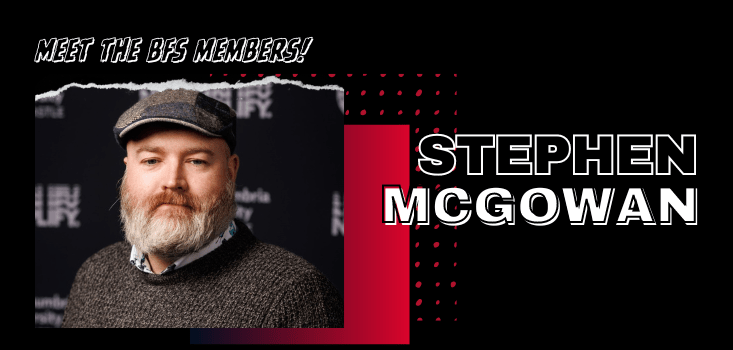Every Friday, we meet a member of the BFS and peer deep into their soul (or, at least, a form they filled out). Want to be featured? Email us: online@britishfantasysociety.org
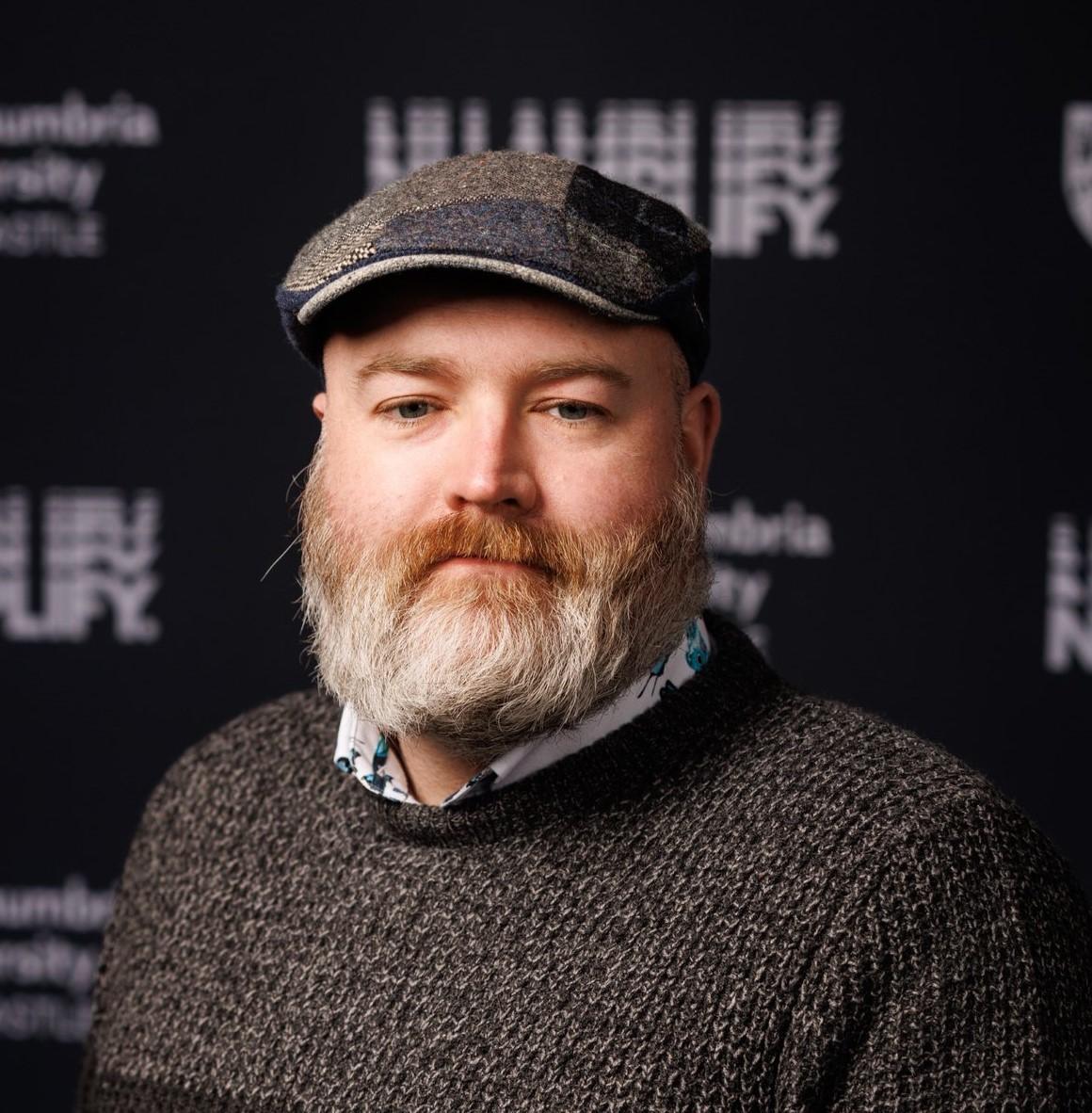
Name:Â
Stephen McGowan (he/him)
Which region are you based in?Â
North-East
If you write, which genre:Â
Sci-fi
Are you drawn to any specific SFFH sub-genres?Â
Space opera And Cyberpunk
If you don’t write, what do you do?
I’m also a Freelance Developmental Editor
Your influences
Tell us about the book/film/thing that got you into SFFH: What was it? How old were you? What impact did it have on you?
Watching Star Trek TNG from when I was 7 onwards, with DS9 and VOY, made me love space as a setting and a more collaborative form of fiction than I’d seen before. Here were characters who were idealistic at the expense of themselves, yet were also flawed. It blew me away that the ideals of the supposedly utopian federation were ideals that had to be fought for every day by these captains and their crews, no matter the odds.Â
How does that early influence show up in your work now?
As an emerging author, my main characters have a sense of idealism inside themselves that gnaws at them when they turn their backs on it. They also have people who rely on them, and whom they also rely despite their insistence to the contrary.
As an editor, I look to the morals of these people in how I work, always assuming the best but being ready to have the hard conversations when it doesn’t pan out.
The Picard speech – “It is possible to commit no mistakes and still lose. That is not a weakness, that is life.” – helps when the rejections flow in.Â
Where do you draw your creative inspiration from?
Generally, scenes come to my mind in isolation and if I think they’re cool enough I write stories around them. Stories tend to develop as I write. I also collect art postcards from publishers, places, and museums that I use as bookmarks to help inspire my imagination.Â
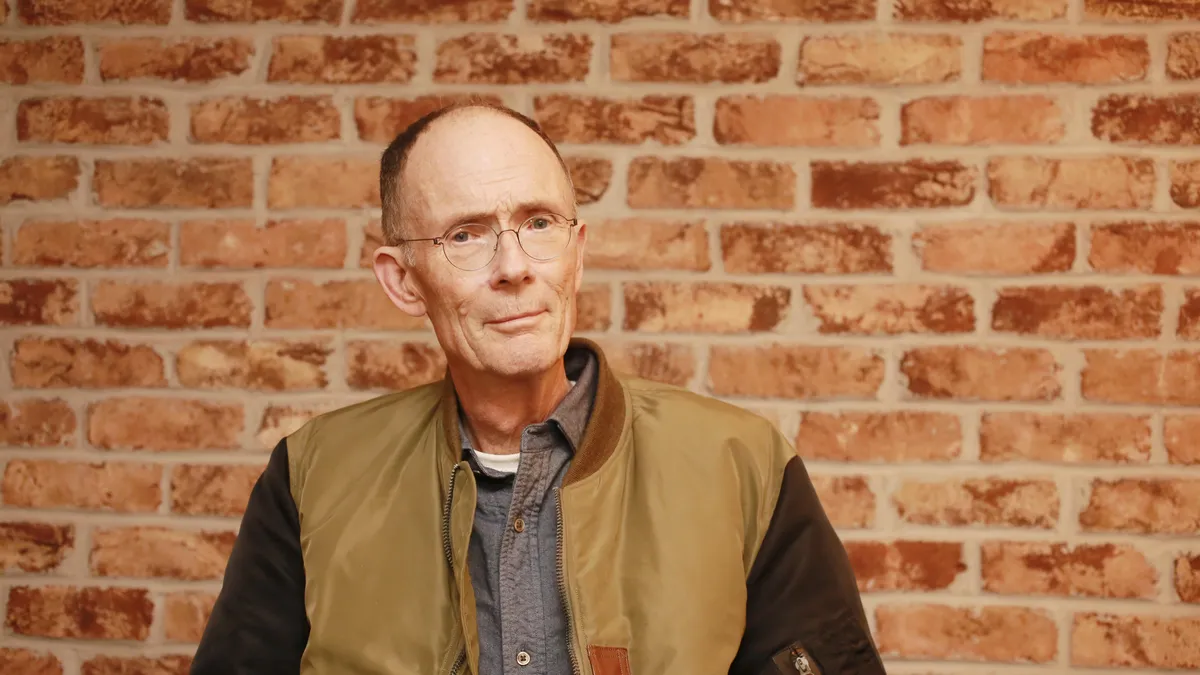
Who do you look to as a genre hero? Why?
William Gibson (pictured) because of his artful underexplaining of things which shows his complete trust in the reader.Â
Your work
You’re stuck in an elevator for 60 seconds with that hero, and they want you to describe your work. Give us the pitch.
I write spec-fic with working class heroes. I rarely explain anything directly and everyone has flaws.
What are you working on right now?
A cyberpunk-crime novel called Joy-Land, the first three chapters of which won a Northern Writers Award in 2024.
(Pictured: Stephen at the novel’s namesake in Great Yarmouth.)
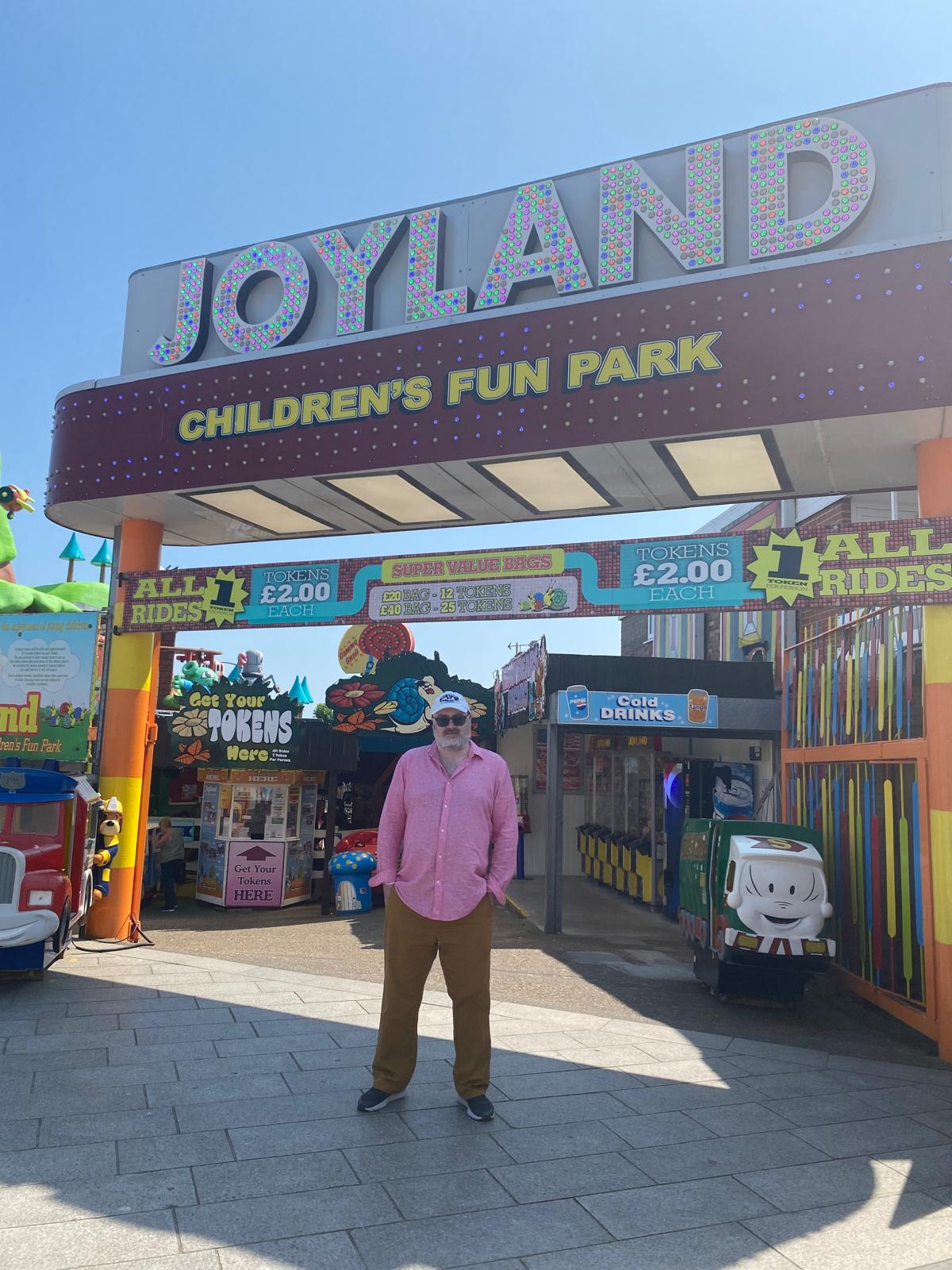
Thinking about all the stories/work you’ve done, what sticks out most in your mind? Why?
For my BA dissertation I wrote a cyberpunk retelling of Gawain and the Green Knight. A lot of it was experimental for me, and it was very stylistic but very northern. It stands out because it was marked during the marking boycott by someone I’d never met and despite getting a good grade I was so cross with the feedback I started writing Joy-Land out of spite. All that time later and I’ve just started to cannibalise it for another project.Â
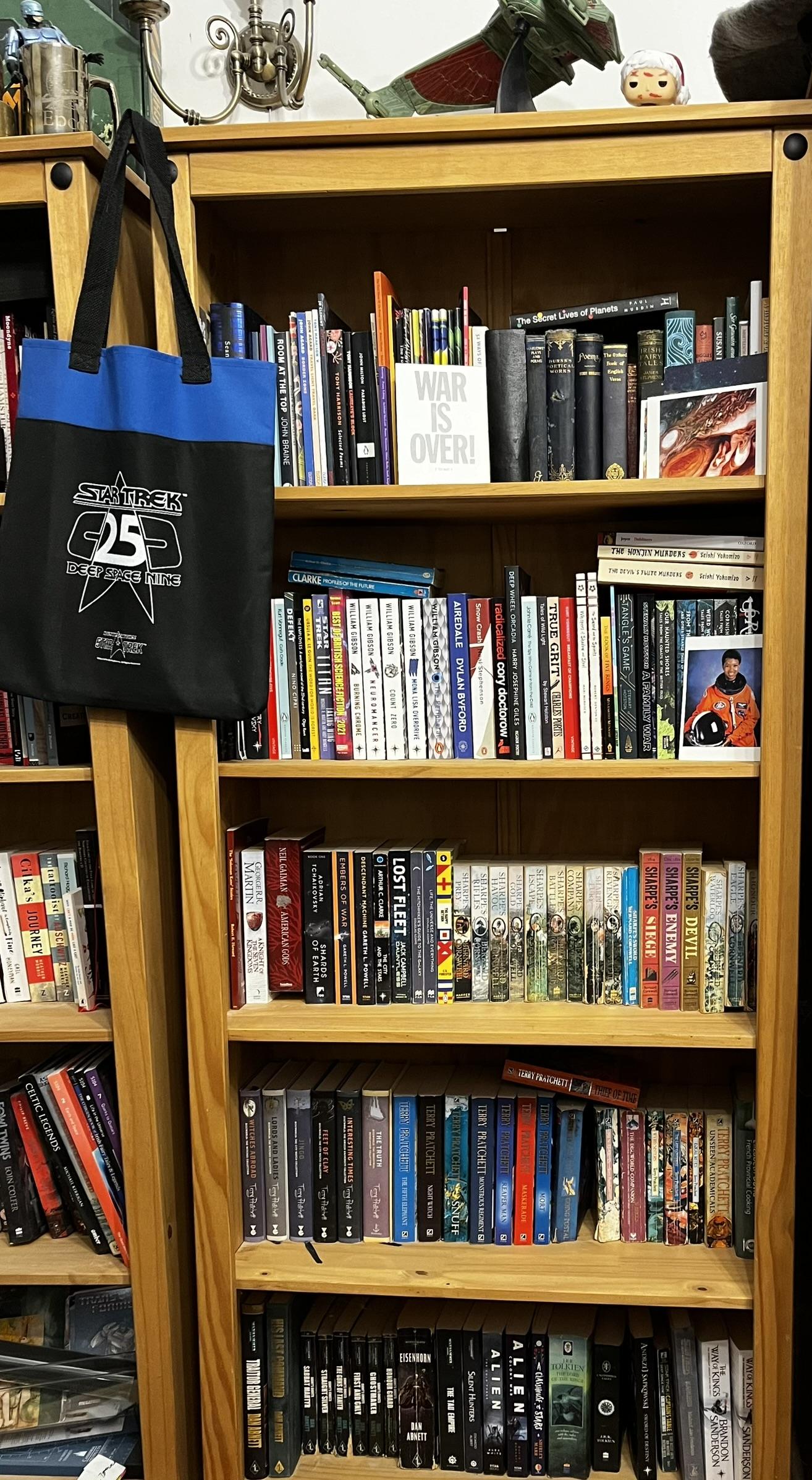
Where and when do you create/are you at your most creative?
It is a fickle thing. I’m neurodivergent so sometimes I have spurts here and there that last for 10 minutes or hours. Generally, I get the most creative thinking done when I’m walking, doing the dishes or as soon as I turn the light off at night. My notes app is full of text I can barely understand.Â
I’m at my most creative when I’m surrounded by creative people either at spoken word events or writing groups. I feel like some sort of creative energy siphon, sucking it all in and tapping away at the laptop.
(Pictured: Stephen’s “tidiest bookshelf”)
What’s the best advice you’ve received about creativity?
Trust your reader. SFFH readers have the best ability to roll with unfamiliar terms, items etc. Because of this you don’t have to stop every paragraph to explain things.
Also, shout out to Gareth L. Powell’s writing advice book which is basically: “I do this, but you can do it whatever way works for you.â€Â
What’s your writing soundtrack?
I make Spotify playlists for every story I write. My last short story, Atomik Rock, had a lot of Kraftwerk and Status Quo.
The quickfire round
Sci-fi, fantasy or horror?
Sci-Fi
Quiet or loud?
Quiet
Dark or light?
Dark
Strict lines or genre blend?
Blend
Awards or bestseller?
Bestseller
Fiction or non-fiction?
Fiction
Poetry or prose?
Both
Plotter or pantser?
Panster
Reading or listening?
Both
Notebook or computer?
Notebook
Favourite SFFH book of all time?
Hitchhiker’s Guide to the Galaxy, by Douglas Adams
Last book you read?
Light of Impossible Stars, by Gareth L. Powell
Any SFFH author on auto-buy?
No, I’ll look closer at books by certain authors, but I won’t buy them unless it takes my eye.
Favourite podcast?
Fantasy Writers Toolshed.
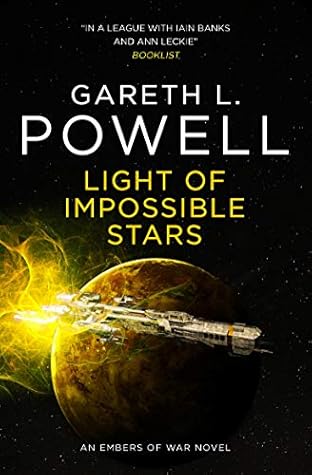
The home stretch
What’s the best thing about being part of the SFFH community?
We fight to keep the community inclusive and welcoming.
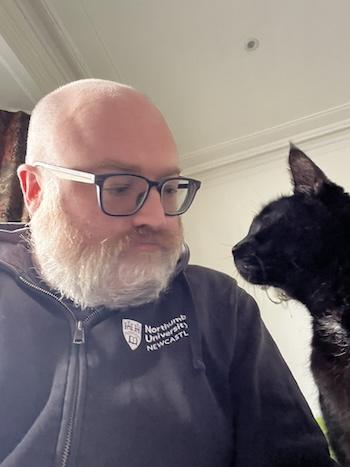
Time to plug your stuff! Where can we find you and your work? What have you got coming up? Consider this your advertising space.
- I blog and release some short stories on Substack.
- I’m on twitter/X as @geekdaddyprime.
- I’ve got space in my diary for more editing work, bookable either on my ko-fi or direct via email stephenmcgowanauthor@gmail.com.
- I won a Northern Writers Award in June 2024 and part of that is a commitment by me to finish Joy-Land by the end of the year, so hopefully that’ll give me some impetus. It also commits me to some PR for New Writing North so I might see you at a book festival or something somewhere in the next twelve months.Â
(Pictured: Stephen with his chief distractor, cat Jack.)

